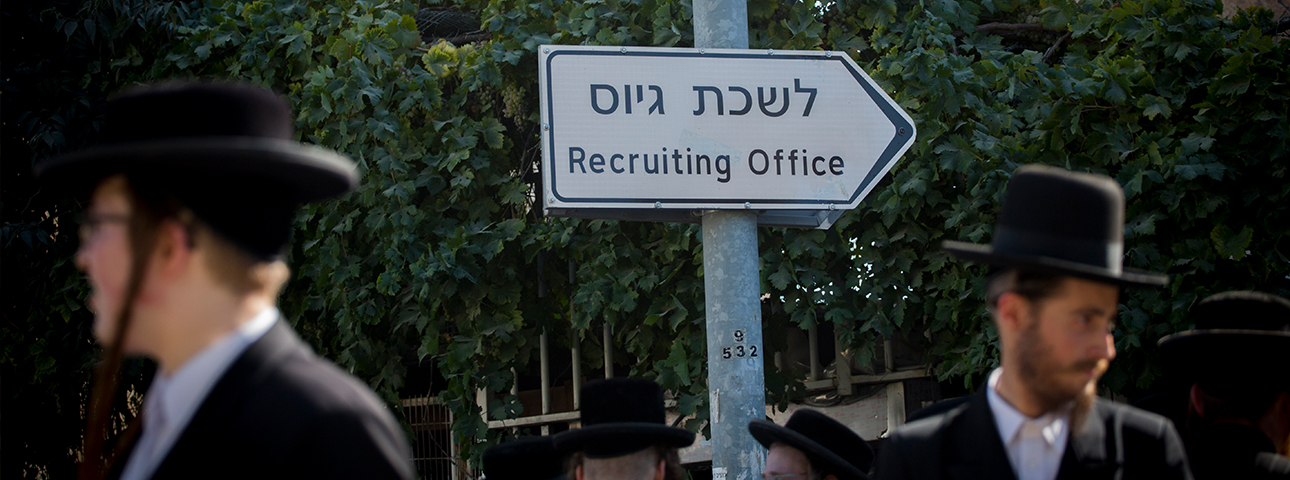Supreme Court Strikes Down ultra-Orthodox Exemption From Military
IDI responds to high court ruling: “The time has come for our politicians to demonstrate leadership and work to enact a more equitable and effective arrangement.”

Israel Democracy Institute's leadership on Tuesday responded favorably to the High Court of Justice's decision to invalidate the Equal Service Law. Senior IDI members added that no court would accept the existence of such blatant discrimination between citizens and between some Jews and other Jews.
The law, which was passed by the current government in 2015, does not include a system of incentives and sanctions to recruit ultra-Orthodox Jews. Recently published data shows that the IDF has not reached its recruitment goals. A mere 2,800 ultra-Orthodox males were drafted in the most recent recruitment cycle, short of the 3,200 target amount. In addition, only about 660 Haredim joined the Sherut Leumi, an alternative voluntary national service, compared with the IDF's goal of 1,500 new ultra-Orthodox recruits.
Yohanan Plesner, President of the Israel Democracy Institute who chaired the Knesset committee in 2012 that revised Haredi conscripting policy, said: "like every Supreme Court in a democratic state, Israel's High Court of Justice had no choice but to throw this discriminatory law out - and back to the Knesset, so as to develop a more equitable arrangement. The current law leaves the government unable to meet the minimum target set for recruiting ultra-Orthodox Jews. Moreover, there are currently no serious efforts being made to bring about a significant increase in Haredi recruitment to meaningful service".
Plesner added that, "instead of attacking the High Court of Justice, the time has come for our politicians to demonstrate leadership and work to enact a more equitable and effective arrangement. Such a reform, based on strong economic incentives, will produce greater equality and should be designed to meet the operational needs of the IDF".
Dr. Gilad Malach, Director of IDI's Ultra-Orthodox in Israel Program, explains that the criminal sanctions actually led to a slowdown in the recruitment of ultra-Orthodox Jews in 2014 and that in 2015 and 2016 there was only a moderate rise.
Malach adds that the budgetary cuts have had a significant effect on the number of students who attend yeshivas. Partly as a result of reduced budgets, the amount of students declined by 8% between 2012 and 2014. However in 2015, with the ultra-Orthodox parties having returned to government as members of the current coalition, budgets were increased and the number of yeshiva students rose accordingly, by 10%. This trend continued in 2016.
The Israel Democracy Institute has called upon the IDF to implement plans to improve the recruitment process for ultra-Orthodox citizens- The ultimate goal of such reforms is to plant the seeds for recruiting more Haredim into the army by increasing the incentives to enlist.
Source of graph: IDI's 2016 Statistical Report on Ultra-Orthodox Society in Israel.
